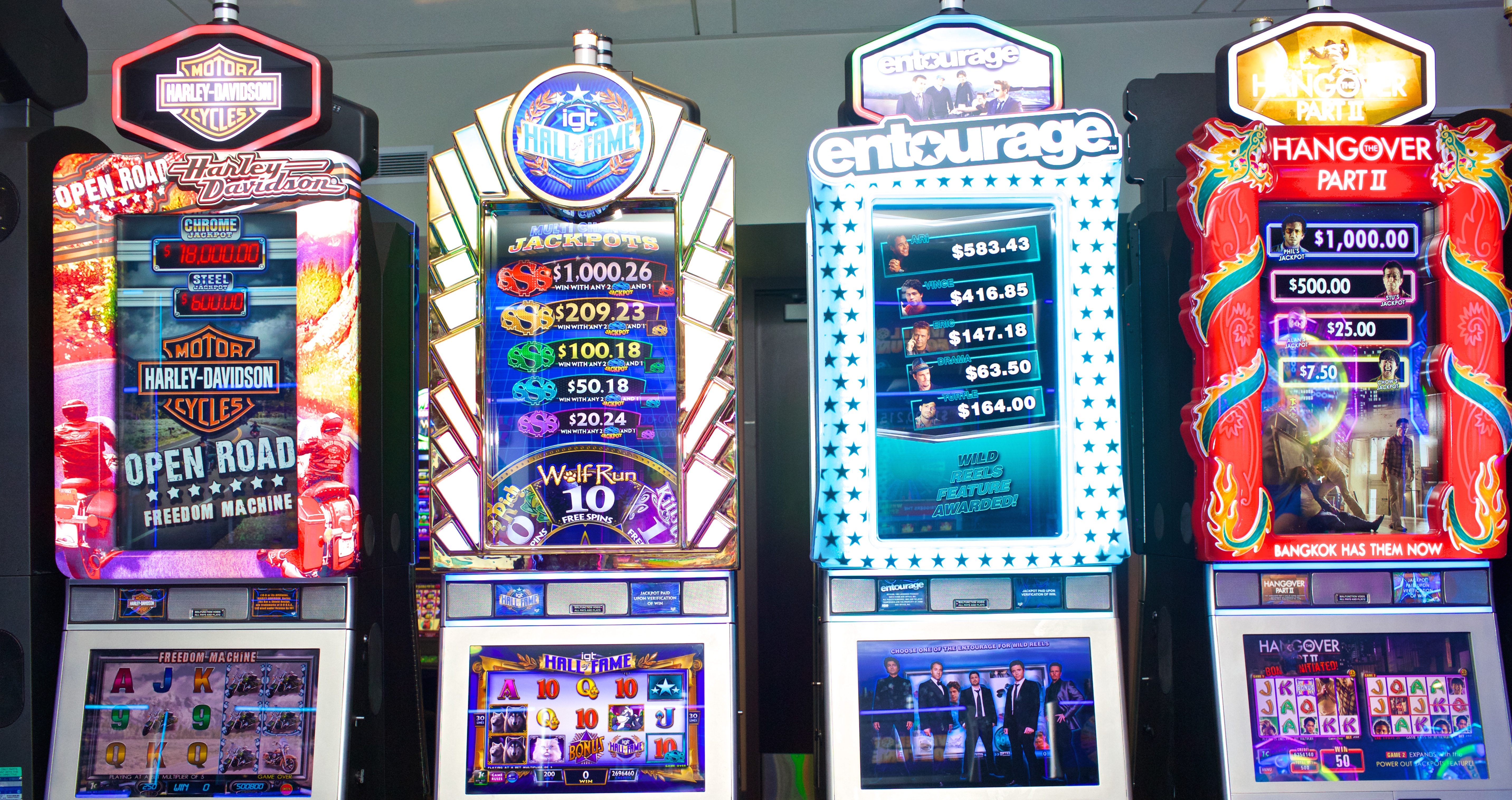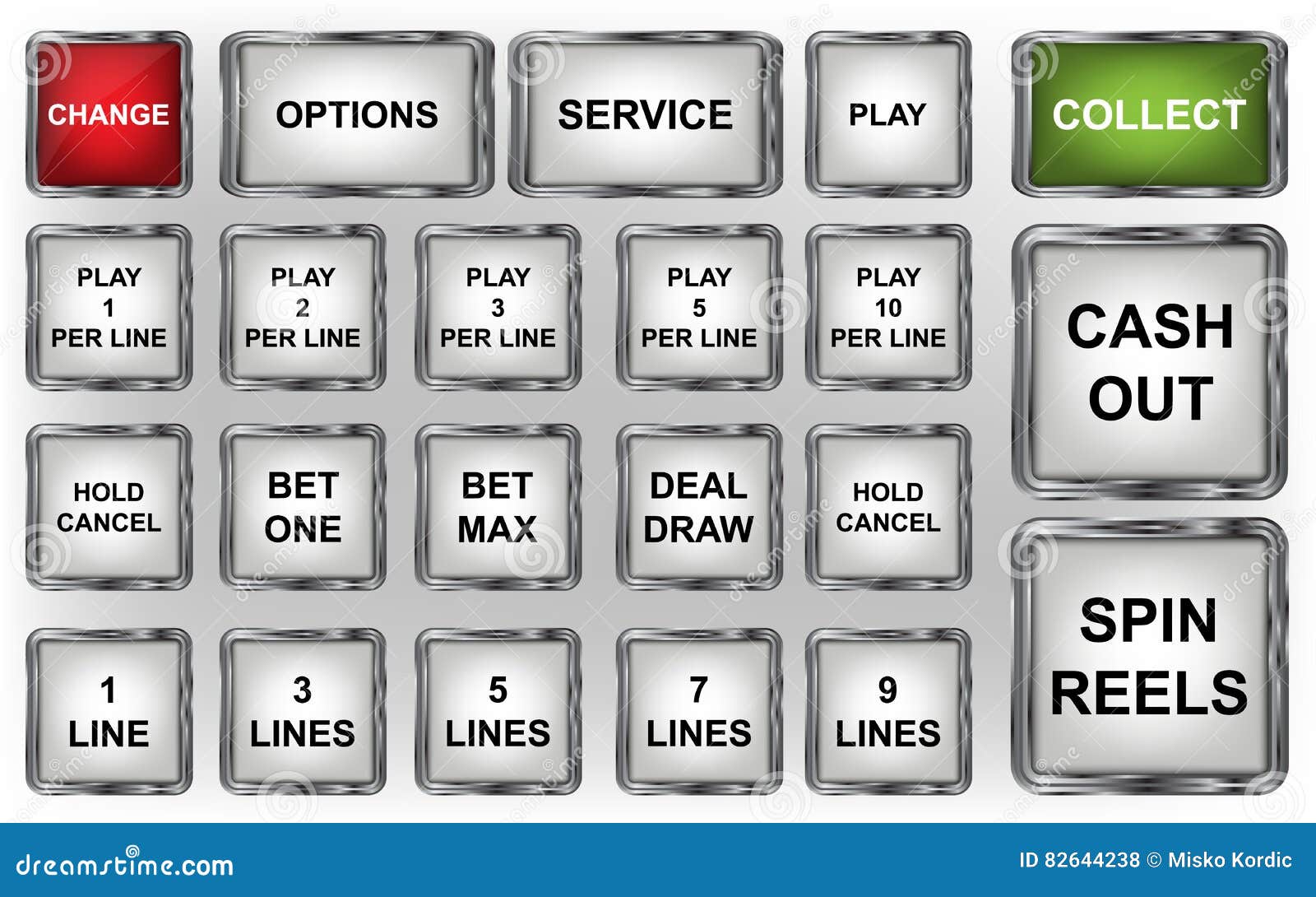When you have extra credits in the machine – just press the Max Bet button – and then spin the reels. 2.3 Play Handle Press or lift on Play Handle – it may be black – or it may be light in a color on other models. 2.4 Skill/Stop Buttons As the reels spin, push the STOP buttons one at a time, in any order to stop the reels. Gambler's Oasis was founded on the principal of providing top quality casino slot machines and gaming devices to your home at the most reasonable price. Whether you want one slot machine or twenty slot machines, your home game room can become an oasis, a refuge, a. Prior to Telnaes’ invention, slot machines were essentially mechanical devices. Besides being difficult to tune and maintain, mechanical slot machines suffered from an essential problem: Let’s look at a machine with three reels, each with 12 symbols, with one of those 12 symbols a cherry.
Today, the mathematics of slot machines. The University of Houston mathematics department presents this program about the machines that make our civilization run, and the people whose ingenuity created them.
Mathematicians first got interested in randomness by studying games of chance. Ever since, the histories of mathematics and gambling have been intertwined. Clever gamblers use mathematics to look for the smallest advantages, and casinos use sophisticated mathematical tools to devise new ways of drawing in players.
What Are The Extra Buttons On A Slot Machine For Real
Indeed, a patent granted to the Norwegian mathematician Inge Telnaes in 1984 transformed the gambling industry. Prior to Telnaes’ invention, slot machines were essentially mechanical devices. Besides being difficult to tune and maintain, mechanical slot machines suffered from an essential problem: Let’s look at a machine with three reels, each with 12 symbols, with one of those 12 symbols a cherry. The likelihood of getting three cherries, and winning the jackpot, is 1 in 1,728. If the casino wants to make money, the jackpot payout should be, say $1,700 on a $1 bet. That does not seem attractive by today’s standards. However, the only way to increase the payout is to decrease the chances of hitting a jackpot.
Adding another reel is a possibility. For instance adding a fourth reel in the previous example would get us to a jackpot of about $20,000. But people do not like machines with more reels — they intuitively, and rightfully, feel that extra reels diminish their chance of winning. Another possibility is to put more symbols on each reel. But the astronomical jackpots you see in casinos today would then require truly enormous machines.
Inge Telnaes proposed a simple solution: Let a random number generator — a computer chip — determine the combination of symbols that appear when the reels stop. In other words, use a chip to control where the reels stop on a spin, but create the illusion that the wheels stopped on their own. The number of possible outcomes on the slot machine does not change. However, by reprogramming the chip, the operator has full control over the likelihood of each of the different outcomes. For instance, the operator could make the three cherries appear only once in a million spins.
This was a brilliant insight: Suppose I pick a number between one and a million. Would you be willing to bet that you can guess that number? The answer is probably not. But let a computer chip pick such a number, put the chip in a machine with blinking lights and spinning reels, and many people will be more than willing to make the bet. It is simply because what people assume is happening in a slot machine is very different from what is actually happening.

The Magician oil painting by Hieronymus Boschfrom between 1475 and 1480
The history of gambling is also intertwined with that of a less reputable group — tricksters and swindlers. In the long run, the only sure way to make money by gambling is to create the illusion that your opponent can win, while keeping the odds firmly on your side. And that gives those who know math a very solid advantage.

I'm Krešimir Josić, at the University of Houston, where we're interested in the way inventive minds work.
NOTE: In the example with three cherries, I assumed that one only wins in the case the spin results in three cherries, and there is no other winning combination. In actuality, there are typically many winning combination, and as a result, the jackpot would have to be even smaller.
The following story in Wired Magazine shows the drawbacks of the new generation of slot machines — they are easier to hack and to counterfit than their mechanical counterpart http://www.wired.com/magazine/2011/07/ff_scammingslots/.
Here is a more exhaustive discussion of the history of slot machines, and the random number generators within them http://catlin.casinocitytimes.com/article/non-random-randomness-part-1-1243. You may want to scroll towards the end of the article to read about how flaws in the design of gambling machine resulted in somebody picking 19 out of 20 winning numbers in a game of KENO — and doing so 3 times in a row. That person walked away with $620,000, but only after some controversy.
Both images are from Wikipedia. The slot machine image was taken by Jeff Kubina.
For more mathematics in everyday life, visitkjosic.wordpress.com.
This episode was first aired on September 7th, 2011
Readers ask if quick reflexes are the key to winning
By John Grochowski
I keep a list of questions that I’m most often asked about slot machines. You could probably tick off some of them: “Are games programmed to go cold after a big win?” “Do you get less payback when you use your rewards card?” And the big one, “Can you tell me how to win?”
Those have been standards ever since I started writing about casinos and casino games 20 years ago. But recently, another question has been shooting up the charts. I have it all the way up at No. 2 on the readers’ hit parade:
“I’ve noticed on a lot of video slot games that if I hit the button a second time while the reels are spinning, they stop right away. I was wondering if I could use this to my advantage. If I see the bonus triggers or the jackpot symbols at the top, should I quickly hit the button again and try to stop the reels?”

I had that thought myself the first time I accidentally double-hit a button and saw the reels click to an immediate halt. Could this be an answer to the chart-topping question, “how to win on the slots?”
Unfortunately, it doesn’t work that way. In nearly all slot games that allow you to stop the reels, there is no skill or timing involved on your part. The random number generator has already determined your outcome when you hit the button to spin the reels, and you’re going to get the same result regardless of whether you stop the reels early, or let them halt in their own time.
When you play a slot machine, the game isn’t actually being played out on the reels, whether it uses “real” reels or video reels. It’s being played internally, on the game’s random number generator. The reels are just a player-friendly interface, and are told where to stop by the RNG. If there’s a malfunction and the reel display doesn’t match the numbers generated, it’s the RNG that counts. Large jackpots can be denied—and have been denied—if a check shows the random numbers on the internal computer chip don’t match the winning symbols on the reels.
But this is extremely rare. The engineering is good enough that almost all the time, the RNG and reel display are going to match up. This doesn’t change if you double-hit the bet button. If the RNG has spit out a random number that tells the first reel to stop on a single bar, then you’re going to get a single bar—regardless of whether you hit the button a second time for a “quick stop,” or just let them take their own sweet time.
There are rare exceptions. When I’ve answered similar questions in the past, I’ve mentioned IGT’s Reel Edge games. In their original incarnation, Reel Edge games enabled players to touch and stop the reels one at a time. There was actual skill involved. Your timing in stopping the reels determined the outcome. The reels spun very, very fast, so it was going take a keen eye and sharp reflexes to get better than random results, but it was possible.
I gave it a try, and found my reflexes just weren’t fast enough to generate more than my normal share of winners. In the original three-reel Blood Life game, I identified a green 7 as the easiest symbol to pick out as it whizzed by. I touched each reel individually as I saw a green 7 reach the top of the slot window, and managed to stop 7s on all three reels. Alas, I failed to land them all on the same payline. Some younger folks with quicker reactions may have been able to do better.
I don’t know if any of the first generation of Reel Edge games remain on casino floors. They were never widespread, and I don’t get lists from casinos or manufacturers telling me what games are available in any given casino. The new generation of Reel Edge puts the skill-based portions of the games in the bonus events.
Blood Life’s updated video incarnation, Blood Life Legends, allows you to test your skill with a joystick to guide a bat through the ups, downs, twists and turns of a cave as you try to collect gems for bonuses. There is actual skill involved, but it’s not the reel-stopping experience readers have been asking about.
On most slot games, even in the bonus events you’re getting an illusion of skill rather than actual skill. And when it comes to stopping the reels, it’s the random number generator, not your reflexes, that determines the results.
What about my readers’ other top questions?
To answer another—no, games are not programmed to go cold after big wins. Results remain as random as humans can program a computer to be. As long as the RNG keeps doing its thing, any big jackpot, any hot streak, and any cold streak eventually fade away into statistical insignificance, and the machine comes very close to its expected payback percentage.
No, you don’t get less payback when you use your rewards card. The player rewards system doesn’t interact with the RNG.
And no, with rare exceptions, there is no way to beat the slots except by being in the right place at the right time. There have been opportunities for small profit on games with banked bonuses such as the old WMS game Piggy Bankin’, where the sharpies would start to play only when there were enough coins in the bank to give the player an edge.
Such games are not common. Just as with stopping the reels early, your results are up to chance and the RNG.